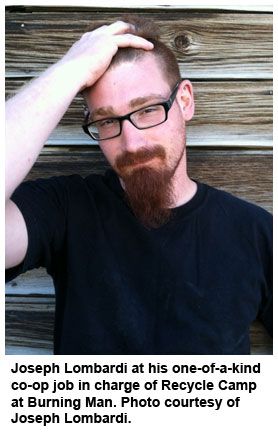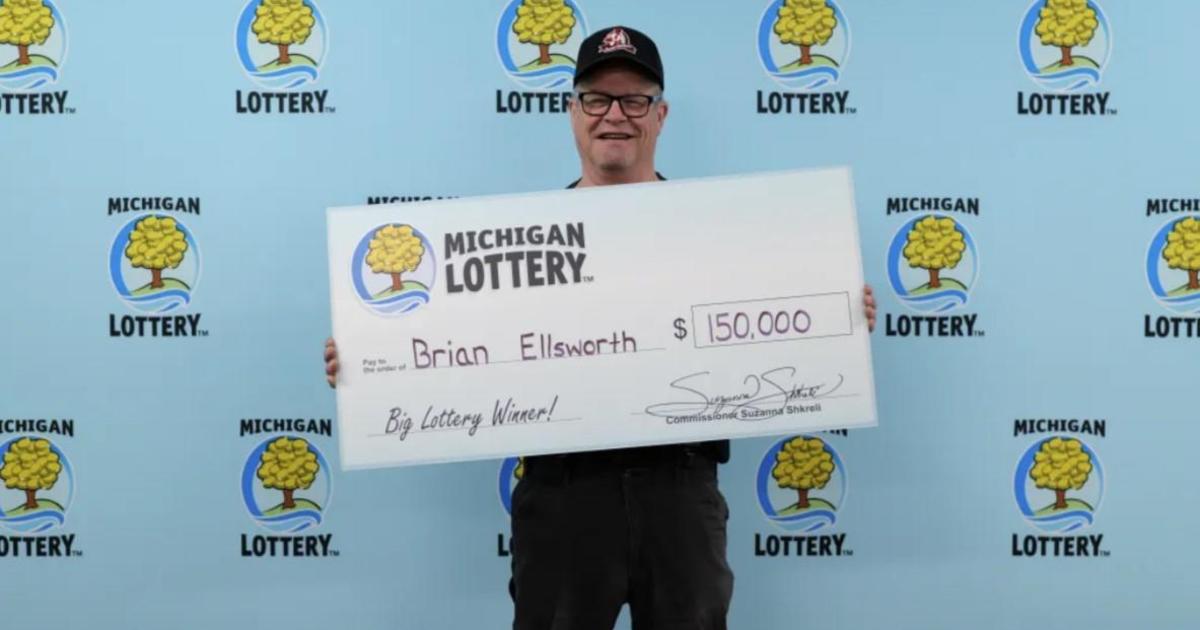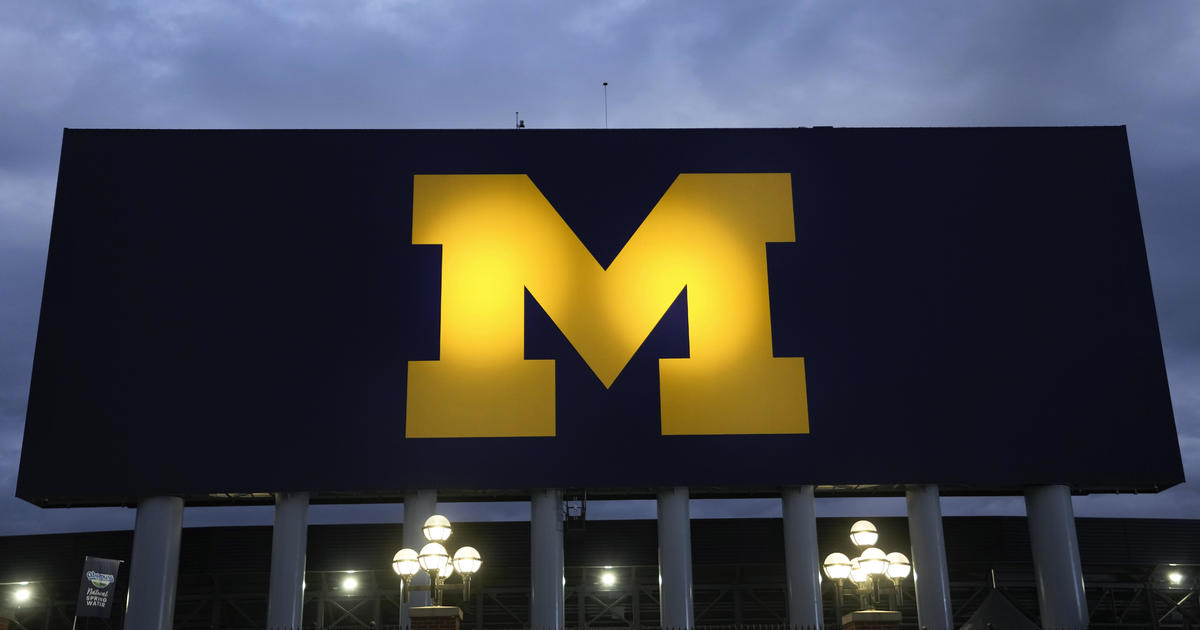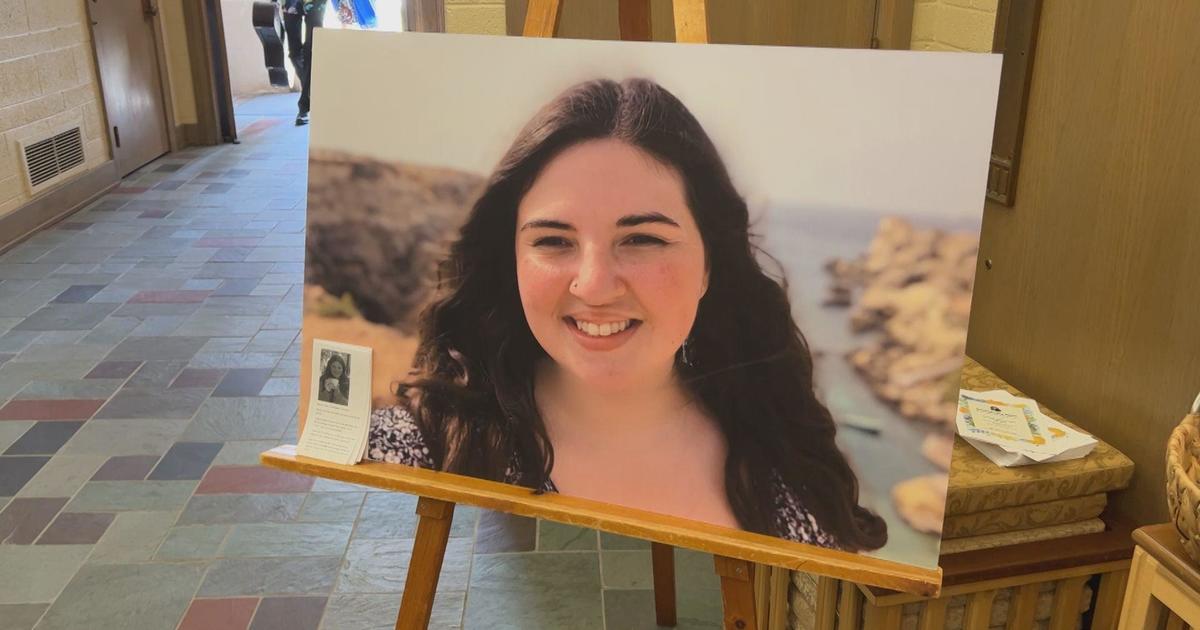Kettering Student Turns Passion For Recycling Into One-Of-A-Kind Job At Burning Man
FLINT -- Welding was what got Joseph Lombardi to Burning Man the first time, but it was recycling that has kept him going back.
Lombardi returned to Nevada's Black Rock Desert for the fifth year in a row in July to set up and manage Recycle Camp at the annual one-week event dedicated to community, art, self-expression, and self-reliance that runs Aug. 27 through Sept. 3 this year.
What started as a volunteer position helping artist Jen Forbes with welding on her project "Refoliation," ignited his interest and brought him back the second year as a volunteer in Recycle Camp on site. It has now worked its way into a paid position for Lombardi, who will be in charge of Recycle Camp, where the motto is "Recycle Everything."
 "We collect firewood, scraps of steel, aluminum, plastics number 1 to 5, cardboard, paper, glass, compost and landfill. We'll collect pretty much anything if we can find somewhere to recycle it," said Lombardi of the theme camp at Burning Man.
"We collect firewood, scraps of steel, aluminum, plastics number 1 to 5, cardboard, paper, glass, compost and landfill. We'll collect pretty much anything if we can find somewhere to recycle it," said Lombardi of the theme camp at Burning Man.
With tens of thousands of participants gathered in the Black Rock Desert in a community called Black Rock City, Lombardi, of Oakland, Calif., has his work cut out for him. One of the Ten Principles of Burning Man is "leave no trace."
After a week of creating art and community in the desert, participants de-camp leaving no trace whatsoever.
In the past, Recycle Camp has primarily been for aluminum only, with crushed cans being sold and the proceeds going directly to the Gerlach, Nev. schools. The donation has reached almost $1,500 in recent years according to the Burning Man web site.
This year Lombardi has put his Industrial Engineering education to work designing a three-tiered pyramid recycling system for Burning Man. An Electrical Engineering major with a minor in Manufacturing, Lombardi said that "designing a recycling system is much like laying out a factory in manufacturing. You have some variables such as the number, size and location of collection points, the size of transfer station dumpsters, the cost of dumpster delivery versus the cost of renting dumpsters, and some constraints like that the collection points must be moved by hand or materials used must be cheaply available and shipped to the site, so it all comes down to an optimization problem."
In the three-tiered structure Lombardi developed, waste first makes its way to the Transfer Station (a.k.a. the dump). Here, there are large dumpsters for each resource.
"Every bag of trash is sorted and separated by staff members and put in the appropriate bins," Lombardi said.
In the second tier, some of the large staff camps have their own mid-sized (1-2 cubic yard) collection stations for specific materials. These materials are picked up by truck during the day by Recycle Camp volunteers at the camp locations, and then sorted at the Transfer Station.
"To select camps we also provide a row of trash cans, labeled and ready to be used," he said.
The final tier is when Recycle Camp takes the waste to recycling centers near the Burning Man site at the end of the week.
"I think the coolest thing about the recycling system here (at Burning Man) is how flexible and adaptive it is. If we have to rearrange collection points or add new streams, we can do it on the fly right there in the field," said Lombardi.
It was his passion for recycling that turned a volunteer position into a paid position for Lombardi.
"My passion for recycling was obvious (after his second year at Burning Man), and I was handy with tools, so they asked me to come out even earlier the third year and help manage the setup of Recycle Camp," Lombardi said. "Once I arrived on site that early in the set-up process I found out that the company organizing Burning Man, Black Rock City, LLC, didn't recycle more than aluminum. And since everyone wanted more recycling, I saw an opportunity to do some good and work for a company I respected."
In his fourth year at Burning Man, Lombardi volunteered to run a staff recycling program in addition to the aluminum recycling program. Though that offer was turned down, the clamor from his friends and coworkers for recycling lead him to do it anyway, while still working with Recycle Camp.
"Once the organization realized it was a necessary service, and saw all the hard work I put into making it happen, they extended an offer for this year, and here I am," he said.
Before working at Burning Man, Lombardi had a co-op position at Jervis B. Webb Co., as an electric vehicle intern working on their Automatic Guided Vehicles for use inside factories. His responsibilities there included AutoCAD and VBA VisualBasic for Applications.
His advice to other Kettering students?
"I'd just encourage students to think out of the box for job opportunities. The best jobs are never advertised for, because no one even knew they were needed," Lombardi said.
As for life after Kettering, Lombardi may have to take his own advice.
"I have very diverse interests and enjoy working in multidisciplinary environments. I think designing and building experimental setups for scientists would be an interesting job, or taking just developed prototypes and designing a manufacturing facility for short production runs," he said. "It is my dream to one day design a truly flexible manufacturing facility, one that could change how machines are attached to each other and even what process the machine does. You would simply submit a 3D model of what you want, and some info about the material and process, and poof! -- out pops the thing you designed, in moderate numbers."
In the meantime, he's got recycling to take care of.



